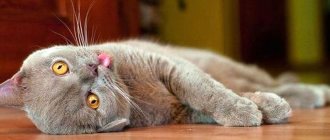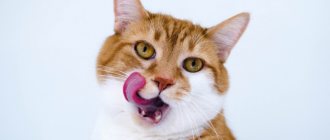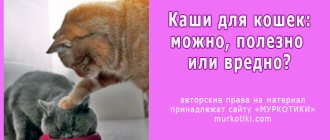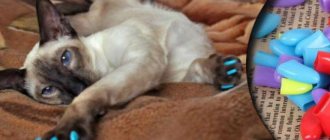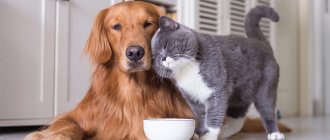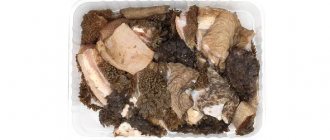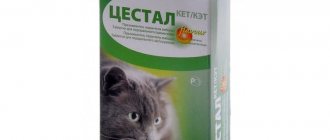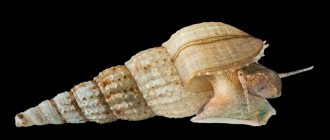Valerian officinalis, popularly called cat herb, has been used in medicine since ancient times. The calming properties of the plant help cope with stress and relieve painful spasms. Despite its sedative properties, valerian causes the completely opposite effect in the cat family.
Without knowing how valerian affects cats and whether it can be given without harm to health, you risk harming the animal. To answer this question, it is enough to analyze the features of the effect of grass on the cat’s body.
Why do cats love valerian so much?
Felinologists have still not come to a consensus why cats love valerian so much. To answer this question, they are guided by 2 theories:
- The smell of the grass is similar to cat pheromones released by females during estrus. The aroma is achieved thanks to the volatile substance contained in the extract.
- The smell of the grass is similar to the odorous marks left by all males of the cat family. This theory is confirmed by the fact that the behavior of domestic and wild felines is identical.
In both theories, love for the plant is explained by stimulation of sexual desire. This fact is confirmed by the fact that kittens are not at all interested in valerian.
Experiments with valerian
Most owners do not see any danger in their cats consuming valerian. After consumption, the cat “has fun” and behaves inappropriately. When the euphoria ends, loss of strength and lethargy are observed. During this period, the animal can easily fall asleep for several hours.
© shutterstock
Experiments with valerian are not recommended to be repeated, as it is addictive to the cat. Without it, the cat begins to experience withdrawal symptoms, which affects its mood and behavior. Males are especially affected by this: they associate the smell of the medicine with the smell of cat fluids. Valerian has no effect on kittens under four months of age, since they are not sexually mature. It only affects those individuals who have passed the stage of puberty.
How does valerian affect cats?
In addition to stimulating sexual desire, the plant causes narcotic intoxication. Because of this, it is important to understand the boundaries of what is permitted and the possible harm from using a human medicinal product.
Animal behavior
It is impossible to say exactly what will happen if you give a cat valerian. The body's reaction is individual, but in most cases it is accompanied by:
- strong sexual arousal;
- loss of coordination and disorientation;
- aggressive behavior;
- rolling on the floor, scratching or rubbing against an object that retains traces of the tincture;
- copious flow of saliva;
- hissing and trying to hide due to a sudden panic attack;
- hallucinations (catching invisible prey or escaping from a non-existent enemy).
The state of euphoria and excitement lasts up to half an hour. All this time, the central nervous system is actively working, so when the effect ends, the animal falls into deep sleep due to severe nervous exhaustion.
The intensity of a cat's reaction to valerian depends on gender, age and breed. A longer lasting effect is typical for sexually mature males, including castrated ones. Of the females, only 30% react. Kittens either ignore the smell or are afraid of it. Also, little interest is typical for representatives of the Siamese breed.
Harm or benefit?
Due to the way valerian affects cats, its use is only permissible as prescribed by a veterinarian. Medicinal tincture is prescribed for:
- heart pathologies;
- hyperthyroidism;
- diseases of the gastrointestinal tract;
- eczema;
- frequent outbursts of aggression.
Harm can only be avoided with the correct dosage. In all other cases, the substance quickly causes addiction, behavioral disorders, loss of weight and coat quality.
Can a cat become an “alcoholic” or a “drug addict”?
Valerian for cats is a real drug. With regular stimulation of CNS receptors, they become dependent. In search of a new dose, the animal begins to look into the cabinets and constantly scream, demanding the drug from the owner.
Is it possible to give a cat valerian?
Valerian is a medicinal plant used as a sedative or antispasmodic. Like any medicine, valerian is given to a cat only as prescribed by a veterinarian.
Of course, now it is appropriate to argue that the effect of valerian is exactly the opposite of the calming one. In fact, only a veterinarian can achieve the right effect by prescribing the correct dose of the drug or combining it with other drugs; preparing special medicinal mixtures for decoctions.
In what cases can a veterinarian recommend valerian for herbal medicine, as an adjuvant in complex treatment:
- some diseases of the digestive system
- some diseases of the cardiovascular system
- diseases of the nervous system
- aggressive behavior
- hyperthyroidism
- eczema
In no case should you use valerian for the sake of interest and fun. By the way, not all purring pets react violently to the taste and smell of valerian. Some purrs are absolutely indifferent to it, while others cannot even stand its smell. But in any case, valerian can be given to a cat only as prescribed by a veterinarian.
How to influence a cat with valerian
In addition to treatment, some owners use the plant to accustom them to scratching posts and litter boxes, as well as to calm their pets during estrus. Due to the possible harm, the safety of these actions remains a big question.
Training to a scratching post or tray
It is better to accustom him to the toilet and scratching post from childhood. The plant has no effect on kittens, so it is better to choose safer and more effective drugs. Drops are suitable for adult animals, but it is better not to abuse such a training tool.
Is Valerian good for calming cats?
Reducing sexual desire by stimulating it is a disastrous idea. After valerian, cats become even more excited. Their behavior is very difficult to predict, and an incorrectly selected dosage can cause addiction in the animal.
If the smell of a volatile substance can deceive the pet, creating the illusion of the presence of the opposite sex, then such an effect will be short-lived. It won't solve the problem, so it's best to see a veterinarian.
In all cases, sterilization remains the most effective solution. The operation not only eliminates sexual desire and the ability to conceive, but also prevents the development of cancer.
Valerian tablets
Valerian tablets are much more dangerous compared to drops.
The fact is that one tablet contains only a quarter of this drug, and the rest of the contents are synthetic excipients that can cause a severe allergic reaction.
If an inexperienced owner gave the cat one tablet, after which the animal fell into a sound sleep, it is necessary to urgently take him to the veterinarian.
It is these factors that explain the negative attitude of veterinarians to such jokes from owners of furry pets. So, is valerian harmful for cats? Too much infusion can even kill the unfortunate animal, plunging it into a state of sleep from which there is no awakening!
What to choose: roots, drops or tablets
The drug has 3 dosage forms: roots, drops and tablets. If you choose valerian for cats, then it is better to avoid tablets and alcohol tinctures. Ethyl alcohol contained in drops can burn the mucous membrane, cause alcohol intoxication and harm the kidneys and liver. The danger of tablets lies in their fillers. The abundance of synthetic substances (75% of the total composition) is fraught with allergic reactions and constipation.
If the doctor recommended a plant for treatment, then it is given to the animal in its natural form - that is, in the roots. You can also prepare a decoction or infusion from the roots, but without adding alcohol.
Cat alcoholism
Is it necessary to castrate a cat: what will happen if you don’t?
The composition of valerian roots is quite diverse. It contains alkaloids, esters, tannins, resin, sugar, glucosides, etc. In addition, ethyl alcohol quickly causes alcohol intoxication and addiction. The animals' heartbeat quickens, their blood pressure rises, and after a while they become lethargic and cannot stand on their feet.
Cat alcoholism
Therefore, the expression “cat alcoholism” is not an empty phrase. Animals cannot resist alcohol. As soon as they smell valerian or take a pill, they immediately become drunk, that is, cats “get drunk.” Often, many of them fall into a deep, drunken sleep, which is typical for people.
Can an overdose happen?
In addition to an allergic reaction, the animal may experience an overdose. It is accompanied by:
- complete loss of coordination;
- falling on the side;
- rolling your eyes;
- convulsions;
- copious discharge of foam from the mouth.
If these signs appear, you must immediately take your pet to the veterinary clinic. Otherwise, he may die from cardiac arrest.
To avoid overdose, strictly follow all doctor's recommendations and do not self-medicate. Remember that all medications should be kept out of the reach of pets.
Impact on the pet
According to veterinary experts, valerian acts like a drug on cats and is addictive. This is harmful to the pet's health.
Under the influence of the smell of the drug, the pet may roll on the floor.
The animal does not have to eat the drug; often a simple smell is enough, and that’s the whole point. The aroma of the plant is similar to the smell of urine of cats in heat. There is a hormonal surge in the animal, it becomes obsessive, as during the period of sexual hunting. If you give a cat valerian, an immediate reaction will follow. The infusion leads to an imbalance in the nervous system: the animal begins to behave inappropriately under the influence of the plant. The cat experiences euphoria, rolls on the floor, meows or yells in a voice that is not its own, and feels aggression towards familiar people and objects. General coordination is disrupted. With frequent use, valerian makes the animal degraded, sometimes hallucinations appear. A pheromone-like substance that resembles estrus has an exciting effect on males.
Conclusion: to give or not to give?
The use of valerian for cats for medicinal purposes is practiced very rarely and only as part of auxiliary therapy. In most cases, it is safer to use alternative medications and herbs.
When is Valerian good for cats?
The use of roots and decoctions is permissible for thyroid dysfunction, fever, intestinal spasms, neuroses and muscle atony. In addition to preventing serious pathologies, the herb can help increase activity and restore appetite.
The disadvantages of the plant outweigh its advantages. When treating pets, it is better to use safer drugs, the reaction to which is easier to predict.
What can be replaced
Since valerian causes drug addiction in cats, it should not be given to animals without a doctor’s permission. If you want to please your pet, you can buy catnip. This grass is often stuffed into the insides of cat toys. You can also buy some dried mint and make a toy for your pet yourself. Such substitutes have a gentler effect on the nervous system of cats. After 15 min. the animals will forget about her.
To avoid trouble, every owner of felines should be aware of the effect of this medicine on four-legged animals. It can be given with the permission of a veterinarian without exceeding the dosage. Otherwise, serious health problems for cats will arise, which can lead to the death of the animals.
Is it possible to give valerian to felines?
Of course, like many medications in small quantities, valerian infusion, even the alcohol-containing one, does not cause any harm to the animal, and if you give it too often, you will simply turn your pet into a dependent drug addict, and fighting such a disease is not very easy. It is worth noting that the product that this plant contains in large quantities can kill your cat, so before you give it to him, think about the consequences. You should not offer valerian to your pet for the purpose of entertainment; remember that he is alive, just like you, and for him these games can be deadly.
If you find an error, please select a piece of text and press Ctrl+Enter.
Why are different valerian preparations dangerous for cats?
It is not recommended to give valerian to cats without the advice of a veterinarian and the presence of indications, because it can cause harm to their health. A high dosage of the drug can poison and even kill the cat. It is unknown what dose of valerian can be fatal for a cat. It all depends on the individual reaction of the animal both to valerian itself and to the additional components contained in pharmaceutical preparations.
It is very undesirable to give cats valerian drops, as they can poison the cat. The tincture contains alcohol, which is not absorbed by the cat's body. Any alcohol, even in a small dose, can cause toxic damage to the liver and kidneys and intoxication of the entire body in animals. Alcohol can also burn the mucous membranes of the cat’s mouth and larynx, which will be very painful for him.
The most dangerous for cats are valerian tablets and alcohol tincture. Even one tablet can cause an overdose of the drug, and the excipients can cause poisoning and allergies.
Symptoms of an overdose of valerian in cats are:
- Impaired coordination of movements, when the cat cannot walk straight, but staggers from side to side;
- Convulsions;
- Discharge of saliva and foam from the mouth;
- Vomit;
- Loss of consciousness,
- Apathy and falling asleep 5-10 minutes after taking the drug.
Loss of motor coordination in cats, when they stagger, fall and move sideways, may seem funny. Not knowing that this condition is very difficult for the animal and is the result of an overdose of the drug, sometimes owners pour valerian into the cat’s mouth to supposedly entertain it.
A typical example of animal abuse.
If any symptoms of an overdose of valerian appear, the cat should be urgently taken to a veterinary clinic to receive help. The most dangerous symptom is an unexpected dream. If a cat falls asleep literally immediately after taking valerian, there is a risk that it may die.
On a note
To treat poisoning in cats, water diluted with apple cider vinegar is sometimes used. However, this remedy only helps with alkali poisoning; with an overdose of valerian, it is completely ineffective.
The effect of valerian in small doses on a cat is also not beneficial. The drug causes a sharp and strong excitation of the central nervous system, which is replaced by inhibition processes. Since the stimuli are very strong and such vibrations are not natural for the animal, it can destroy neurons in the brain.
It is also believed that valerian can cause visual hallucinations in cats. Although there is no scientific evidence for this, according to experts, it is precisely their consequence that cats behave wildly, when they begin to hiss and rush at something in an empty space.
Sometimes cats, once they try valerian, begin to look for it and beg for it, constantly meowing. It is believed that the plant can be highly addictive, and it is then very difficult to wean a cat off valerian. If such a problem arises, only a veterinarian can help solve it. Of course, not all cats get used to it. Some animals can safely tolerate one dose of the drug, while it can cause serious harm to the health of others.
